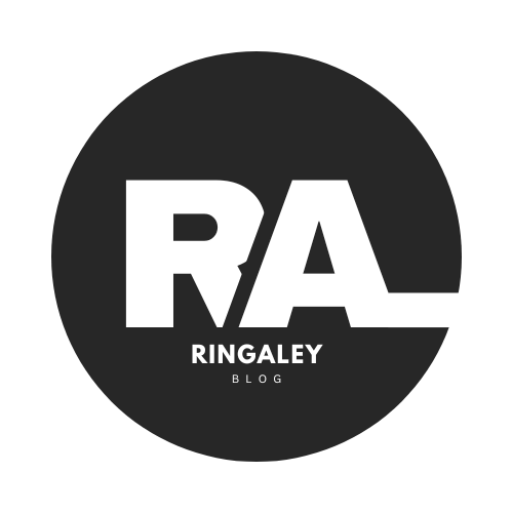For many of us, morning coffee is a non-negotiable ritual—a sacred moment of warmth and energy to kickstart the day. But what if that very cup of coffee is actually making you more tired instead of giving you a much-needed energy boost?
It sounds counterintuitive, but science reveals some surprising effects of caffeine on the body. While coffee can enhance alertness in the short term, it may also contribute to energy crashes, disrupted sleep, and even chronic fatigue. If you've ever found yourself reaching for more coffee just a few hours after your first cup, you might be caught in a cycle of caffeine dependence and energy dips.
So, why does this happen? Let’s dive deep into the science behind coffee’s effects on the body, explore why it might be making you more tired, and discuss practical ways to enjoy coffee without the unwanted fatigue.
The Science of Coffee and Caffeine: How It Affects Your Energy Levels
Caffeine, the active compound in coffee, is a stimulant that affects the central nervous system. It works primarily by blocking adenosine, a neurotransmitter responsible for making you feel sleepy. This blockage leads to increased alertness and temporary energy boosts.
How Caffeine Works in the Body
1. Blocks Adenosine – Adenosine builds up in the brain throughout the day, signaling the body to rest. Caffeine prevents adenosine from binding to its receptors, making you feel more awake.
2. Triggers Dopamine and Adrenaline Release – Coffee stimulates the release of dopamine (the “feel-good” hormone) and adrenaline, leading to a sense of increased energy and focus.
3. Has a Half-Life of About 5-6 Hours – While caffeine’s stimulating effects last for hours, its decline can cause withdrawal symptoms, including fatigue and brain fog.
However, this isn’t the whole story. Over time, caffeine can trick your body into a cycle of dependence and energy depletion.

5 Reasons Your Morning Coffee Might Be Making You Tired
1. The Caffeine Crash: A Rapid Drop in Energy
While coffee initially increases alertness, it eventually leads to a crash. Here’s why:
- When caffeine wears off, the built-up adenosine rushes to its receptors, making you feel even more tired than before.
- Your body compensates for the artificial energy spike by slowing down its natural production of energy-boosting hormones.
2. Disrupted Sleep Quality
Even if you drink coffee in the morning, caffeine can still negatively affect your sleep at night. Studies show that caffeine consumed even 6 hours before bedtime can reduce total sleep time and sleep quality. Poor sleep leads to:
- Grogginess in the morning
- Increased caffeine dependence
- A vicious cycle of fatigue and reliance on coffee
3. Adrenal Fatigue: Overworking Your Stress Hormones
Coffee stimulates adrenaline production, which is useful in small doses. However, over time, frequent coffee consumption can overwork your adrenal glands, leading to adrenal fatigue—a condition where your body struggles to produce enough cortisol to sustain energy levels.
Symptoms of adrenal fatigue include:
- Feeling exhausted despite sleeping well
- Reliance on caffeine for energy
- Midday crashes and brain fog
4. Coffee-Induced Dehydration
Caffeine is a mild diuretic, meaning it increases urine production. This can lead to dehydration, which is a common cause of fatigue. If you’re drinking coffee without enough water, you may experience:
- Headaches
- Dizziness
- Persistent tiredness
5. Blood Sugar Imbalances and Energy Dips
If you drink coffee with sugar or flavored syrups, your blood sugar levels spike and crash, leaving you feeling drained. Even black coffee on an empty stomach can trigger an insulin response, leading to:
- Energy crashes
- Increased hunger and cravings
- Irritability and fatigue

How to Enjoy Coffee Without the Fatigue
The good news? You don’t have to quit coffee completely! By making a few adjustments, you can enjoy your caffeine fix without experiencing energy crashes and fatigue.
1. Time Your Coffee Strategically
- Avoid coffee first thing in the morning. Instead, drink it 90 minutes after waking up to allow your body’s natural cortisol levels to stabilize.
- Stop caffeine intake at least 6-8 hours before bedtime to prevent sleep disruption.
2. Stay Hydrated
- For every cup of coffee, drink a glass of water to counteract dehydration.
- Add a pinch of sea salt or electrolytes to your water to maintain proper hydration levels.
3. Pair Coffee with a Balanced Meal
- Avoid drinking coffee on an empty stomach to prevent blood sugar imbalances.
- Pair coffee with healthy fats and protein (e.g., eggs, nuts, avocado) to sustain energy levels.
4. Switch to Quality, Low-Acid Coffee
- Opt for organic, low-acid coffee to reduce digestive stress.
- Try cold brew coffee, which has less acidity and a smoother taste.
5. Experiment with Coffee Alternatives
- If you’re experiencing chronic fatigue, consider reducing caffeine and trying alternatives like:
- Matcha green tea – Provides caffeine but releases energy slowly, avoiding crashes.
- Herbal adaptogenic coffee – Contains ingredients like ashwagandha and reishi mushrooms for natural energy.
- Chicory root coffee – A caffeine-free option that tastes similar to coffee but supports gut health.
Find a Coffee Routine That Works for You
If you’re feeling tired despite drinking coffee, it might be time to reassess your caffeine habits. While coffee can be a great energy booster, excessive or poorly timed consumption can lead to fatigue, adrenal burnout, and sleep disturbances.
Key Takeaways:
✅ Avoid drinking coffee first thing in the morning – wait at least 90 minutes after waking up. ✅ Stay hydrated to counteract coffee’s diuretic effects. ✅ Pair coffee with a balanced meal to prevent energy crashes. ✅ Limit coffee intake after 2 PM to protect your sleep quality. ✅ Experiment with healthier coffee alternatives if needed.
Have you noticed coffee making you more tired? Drop a comment below and share your experience! And if you found this article helpful, share it with your coffee-loving friends—they might need these tips too! ☕🚀


